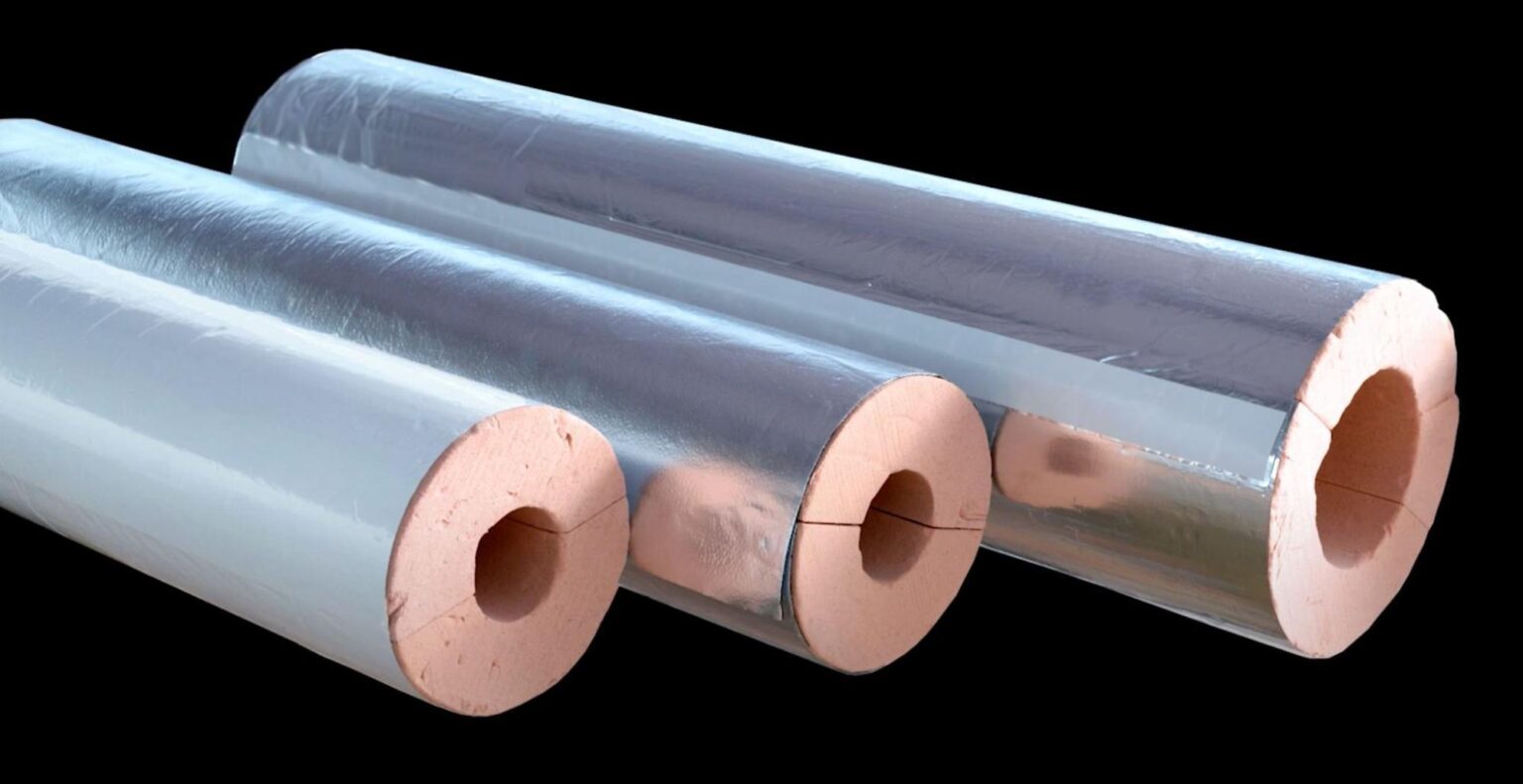
What is Pipe Insulation Used For?
Pipe insulation is a crucial element in many plumbing, heating, and cooling systems. It serves a variety of important purposes, from enhancing energy efficiency to protecting pipes from damage. This simple yet effective solution provides numerous benefits that make it an essential component for both residential and commercial properties.
Here’s an overview of the primary uses and advantages of pipe insulation:
1. Preventing Heat Loss or Gain
One of the main functions of pipe insulation is to prevent heat loss or gain as water flows through pipes.
- Hot Water Pipes: Insulating hot water pipes helps maintain the temperature of the water as it moves through the plumbing system, preventing heat loss and improving energy efficiency. This ensures that the water remains at the desired temperature when it reaches faucets, showers, or appliances.
- Cold Water Pipes: Similarly, insulating cold water pipes helps prevent unwanted heat from entering the pipes, keeping the water cool and reducing the workload on air conditioning systems or refrigeration units.
By maintaining a consistent temperature within the pipes, pipe insulation minimizes the amount of energy needed to heat or cool the water, leading to lower energy consumption and reduced utility bills.
2. Preventing Frozen Pipes
In colder climates, pipe insulation plays a vital role in preventing pipes from freezing during the winter months. When water inside pipes freezes, it expands, causing the pipes to burst. This can result in costly water damage and expensive repairs.
- Protection Against Burst Pipes: Insulation helps keep water inside pipes from reaching freezing temperatures, particularly in areas like basements, attics, and exterior walls where pipes are more exposed to cold air.
- Preventing Water Damage: By insulating pipes, you reduce the likelihood of frozen pipes, helping to avoid the potential for serious water damage to your property.
3. Reducing Condensation
When cold water pipes are exposed to warmer air, condensation can form on the outside of the pipes, leading to water damage on walls, ceilings, or floors. This moisture can also promote the growth of mold and mildew, which can be harmful to health and cause structural damage.
- Prevention of Mold Growth: Pipe insulation prevents condensation from forming by maintaining a consistent temperature on the exterior of cold water pipes, helping to protect the surrounding areas from moisture-related issues.
- Water Damage Prevention: By reducing the potential for condensation, insulation helps avoid water damage to surrounding materials, such as drywall, insulation, and flooring.
4. Reducing Noise
Water moving through pipes, particularly in larger systems, can create unwanted noise. This can be disruptive, especially in quiet areas like bedrooms, offices, or libraries. Pipe insulation helps to absorb and reduce the noise generated by water flowing through the pipes.
- Noise Dampening: Insulation materials, such as foam or fiberglass, can act as sound barriers, reducing the vibrations and noise created by the water flowing through pipes.
- Improved Comfort: Insulating pipes in your home or business reduces distracting noises, improving the overall comfort and acoustics of your space.
5. Protecting Pipes from Damage
Pipe insulation provides a layer of protection to the pipes themselves. Insulated pipes are less vulnerable to physical damage from external forces, temperature fluctuations, or environmental factors.
- Protection Against Physical Damage: Insulation helps protect pipes from impacts, abrasions, or pressure that might occur in high-traffic areas or industrial settings.
- Temperature Protection: By maintaining a consistent internal temperature, insulation protects pipes from expansion or contraction caused by extreme temperature fluctuations, which can lead to cracks or leaks.
6. Energy Efficiency and Cost Savings
By preventing heat loss, reducing the workload on heating and cooling systems, and protecting pipes from damage, pipe insulation contributes to improved energy efficiency. This leads to lower energy bills and a reduction in overall energy consumption.
- Lower Utility Bills: With hot water pipes retaining heat and cold water pipes staying cool, energy efficiency is maximized, leading to a reduction in heating and cooling costs.
- Sustainability: By using less energy, homes and businesses with properly insulated pipes contribute to a reduction in their carbon footprint, making pipe insulation an environmentally friendly option.
7. Fire Resistance
Some types of pipe insulation, such as mineral wool and fiberglass, are naturally fire-resistant. This can be particularly useful in buildings where fire safety is a priority, such as commercial or industrial settings.
- Fire Protection: In the event of a fire, insulated pipes made from fire-resistant materials are less likely to catch fire or contribute to the spread of flames, providing added safety for the structure.
- Compliance with Safety Standards: Insulating pipes with fire-resistant materials can help buildings comply with local building codes and fire safety regulations.
8. Applications in HVAC Systems
Pipe insulation is widely used in HVAC systems to reduce energy loss and improve system efficiency. Whether it’s for hot or cold water pipes, chilled water lines, or refrigerant lines, insulation helps regulate temperature and maintain optimal performance.
- Air Conditioning Systems: In HVAC systems, pipe insulation reduces the chances of energy waste by ensuring that cool air remains cool, making air conditioning systems more efficient.
- Heating Systems: Similarly, in heating systems, insulation helps to maintain the warmth of the air or water being circulated, enhancing the system’s overall efficiency.
Conclusion: Why Is Pipe Insulation Important?
In summary, pipe insulation is used for a wide range of purposes that ultimately improve the efficiency, safety, and durability of plumbing and HVAC systems. From preventing heat loss and freezing pipes to reducing condensation, noise, and the risk of damage, the benefits of pipe insulation are undeniable. Additionally, it contributes to energy savings and environmental sustainability, making it an essential investment for homes and businesses alike.
If you’re looking to improve the efficiency of your plumbing or HVAC system, pipe insulation is a smart choice. Protect your pipes, reduce energy costs, and enjoy a more comfortable environment by installing high-quality pipe insulation in your home or commercial building today.